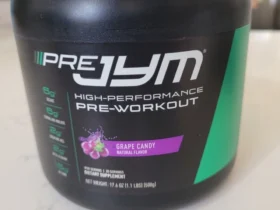If you’re looking to get the most out of your workouts, you may want to consider using a pre-workout supplement. With hard-core names like Kaged, Black Powder, Ryse, and Bucked Up, these supplements promise to increase energy levels, improve focus, and boost performance. But do they work?
In this comprehensive pre-workout guide, we will discuss what pre-workout supplements are, why you might want to use them, and some common ingredients found in these supplements. We’ll also talk about some ingredients you may want to avoid!
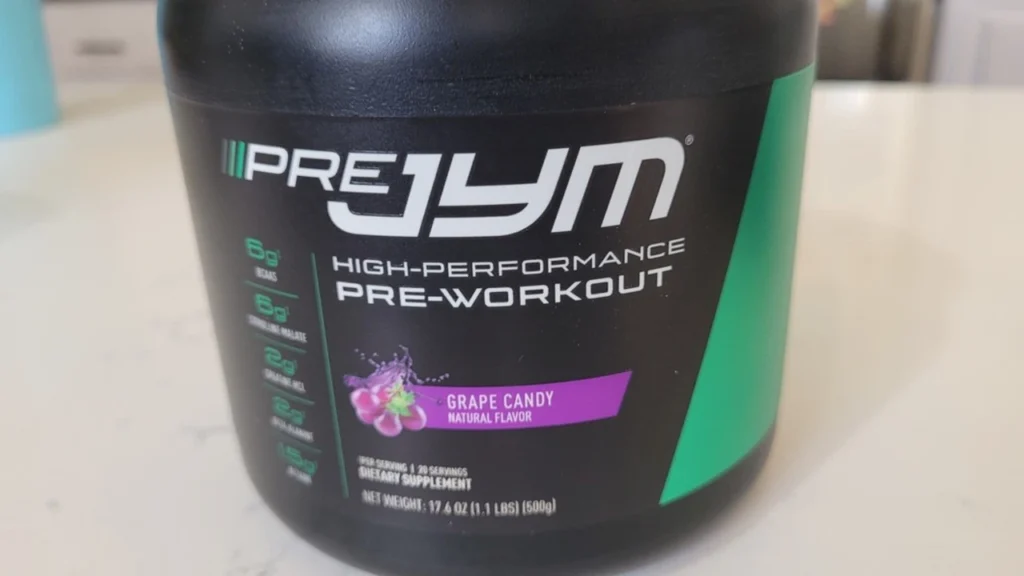
Table of Contents
What Does A Pre-Workout Do?
Simply put, pre-workout supplements are designed to help athletes and fitness enthusiasts maximize their physical performance while in the gym. These supplements typically contain ingredients such as creatine, caffeine, beta-alanine, BCAAs, and nitric oxide precursors that have been shown to increase energy levels, improve endurance, and enhance muscle growth.
Pre-workout supplements can also help serious endurance athletes reduce fatigue during workouts, allowing users to push themselves further and achieve better results. Additionally, pre-workout supplements can help improve mental focus and alertness during exercise sessions.
When taken correctly, pre-workout supplements can provide a range of benefits for those looking to take their workouts to the next level. However, it is important to note that these supplements should not be used as a substitute for proper nutrition, exercise, or recovery. Instead, they should be used in combination with a healthy diet and regular physical activity to get the most out of them.
What’s in My Pre-Workout?
So what are some common pre-workout ingredients? If you want to read a study on it, check out this link, including the fact that of 100 commercially available pre-workouts, the average amount of pre-workout ingredients in each was ~18 which range from 9-27 total ingredients.
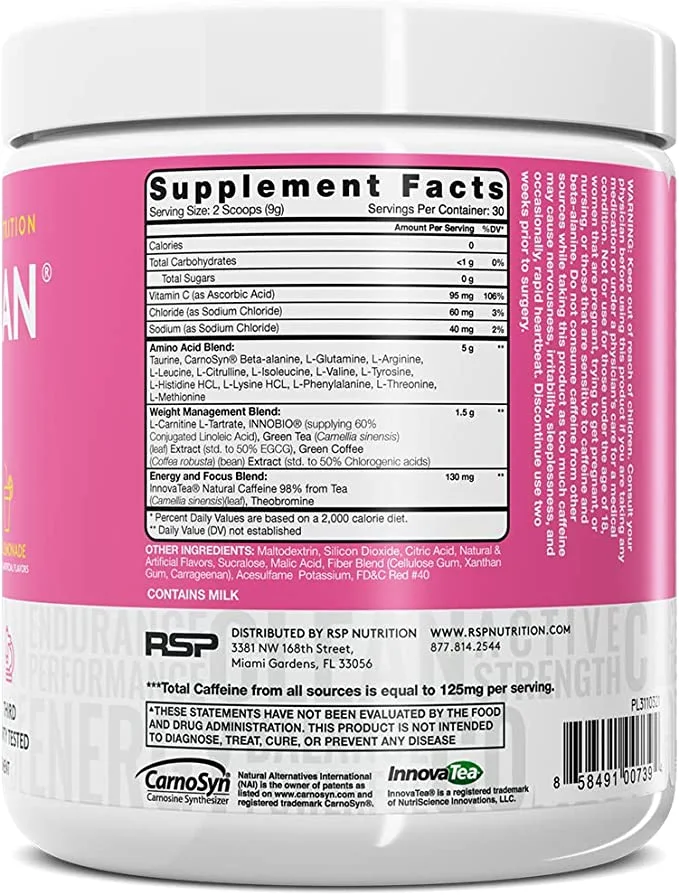
So with that said, let’s take a look at a few of the basic ingredients you’ll find in a lot of the best pre-workout supplements.
Caffeine
Caffeine is probably the most popular ingredient found in pre-workout supplements and for good reason. This is because caffeine – which is a stimulant – has been scientifically proven to increase energy levels, improve mental focus, reduce fatigue during exercise sessions, and moderately boost testosterone.
Additionally, research has shown that caffeine – or products containing caffeine such as green tea extract – can help enhance athletic performance by improving coordination and reaction time.
Moreover, caffeine has also been linked to improved fat-burning during workouts, making it an enticing choice for those looking to lean down. It’s important to note though, that too much caffeine can lead to negative side effects such as jitters, insomnia, and every bodybuilder’s worst nightmare – an increase in cortisol.
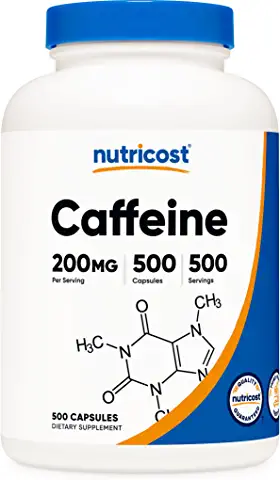
According to the Dietary Guidelines for Americans, it’s safe for most adults to consume up to 400 milligrams (mg) of caffeine per day. That’s roughly equivalent to four cups of brewed coffee or two energy drinks. Personally, after much experimentation, I don’t go over ~250 mg per day but you may have to figure out your tolerance levels.
Just be aware if you do use a pre-workout, you might want to avoid any other caffeine for that day. It’s also important to note that individual tolerance levels vary depending on age, body weight, and other factors.
Beta-Alanine
Beta-alanine is an amino acid that plays an important role in many pre-workout supplements and after-workout powders. It is a non-essential amino acid, meaning that the body can produce it on its own.
Beta-alanine helps to buffer acid in muscles, allowing for improved performance during exercise. It also helps to increase muscle carnosine levels, which can help reduce fatigue and improve muscular endurance.
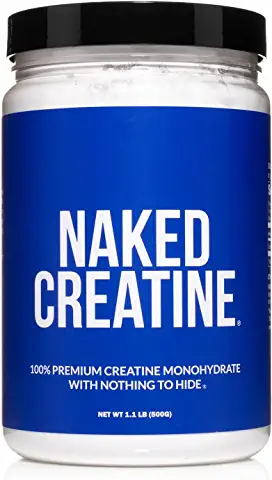
Creatine Monohydrate
One of the more popular (and extensively researched) supplements, creatine is found in many pre-workout formulas. Since it helps to increase muscle mass and strength while decreasing fatigue during exercise, taking creatine before your workout helps you reach your fitness goals faster by allowing you to train harder for longer periods.
This can result in increased muscle mass, strength, and power output. Additionally, taking creatine may also improve cognitive function and help protect against some neurological diseases.
A standard effective dose of creatine is generally in the 5-gram range — even if your pre-workout doesn’t have that much (and many don’t), it’s cheap and easy enough to buy some creatine and add a little more into your drink mix.
Branched-chain amino acids (BCAAs) or Essential amino acids (EAAs)
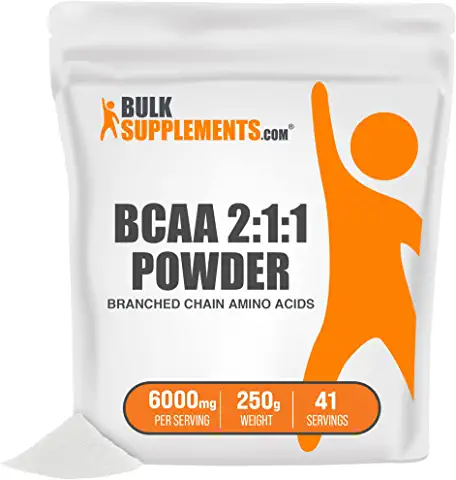
BCAAs (Branched Chain Amino Acids) and EAAs (Essential Amino Acids) are both important components of pre-workout formulas as they can help to improve performance, increase muscle growth, and reduce fatigue.
BCAAs are comprised of three essential amino acids: leucine, isoleucine, and valine. These three amino acids are known to be the most important for muscle growth and recovery and muscle protein synthesis 1 the process in muscle tissue that incorporates amino acids into bound skeletal muscle proteins[/mfn].
EAAs are a complete set of nine essential amino acids that cannot be produced by the body and must be obtained through diet or supplementation. They have been shown to provide an additional boost in muscle growth compared to BCAAs alone.
Nitrates
Nitrates and nitric oxide are commonly found in pre-workouts as they have the ability to improve exercise performance. Nitrates are compounds that may be converted into nitric oxide (NO) in the body. Nitric oxide production can lead to increased blood flow, better oxygen delivery to cells, and improved muscle pumps.
Studies have shown that nitrates can reduce fatigue during exercise by improving energy efficiency and decreasing oxygen consumption. Additionally, nitrates may also help reduce muscle soreness after exercise, improve blood flow, and aid in recovery. Derived from l-arginine and Oxygen, NO may even help with hypertension and other diseases.
Are Pre-Workouts Effective?
Like a lot of things, it depends. Some pre-workouts are nothing more than slightly enhanced caffeine powders. Other pre-workout supplements are much more well-rounded and, in my experience, really do enhance energy and alertness without having a nasty “crash” at the end.
So how do you know which have performance-enhancing benefits and which are wastes of money? Well, the best way is obviously to try them. Other than that, look for ingredients – some of which we detailed above – that will boost workout performance. One other great way – read our hands-on, non-paid pre-workout reviews.
Is a Pre-Workout Safe?
While there are no absolutes, a pre-workout is generally considered safe. But there are some things to be aware of before going “all in” on a pre-workout. It is important to read the label carefully and maybe even consult with your doctor before taking any pre-workout powder.
More on this below but be sure not to go over the recommended dose. Additionally, it is important to make sure you are drinking plenty of water during your workouts and not overdoing it on the dosage.
Lastly, it’s important to note that individual tolerance levels are highly variable depending on age, body weight, previous exposure, and other factors. For example, pregnant or breastfeeding women are advised to consume no more than 200 mg/day while teens should limit their caffeine intake to less than 100 mg/day.
What About Stimulant Free Pre Workouts?
Stimulant-free pre-workout powders are becoming increasingly popular among athletes and bodybuilders who want to increase their energy and performance without the (potential) crash associated with stimulants. These powders are formulated with natural ingredients such as beta-alanine, citrulline malate, and l-citrulline, usually in a 2:1:1 or 1:1:1 type format.
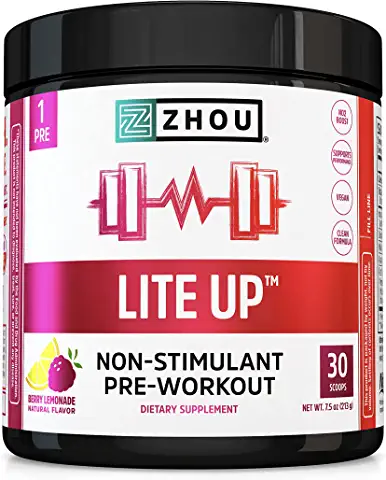
Non-stim pre-workouts can help boost strength, endurance, and focus without the jitters or other side effects of stimulants although they tend to not work quite as well for most people.
Should I Take a Pre-Workout Every Day?
While you can take one every day, it’s not recommended for a few reasons. For one, the more you use the pre-workout the more you build up a tolerance to it. As such, it will become less effective over time.
Additionally, you shouldn’t need to use a pre-workout for most workouts. It really should be reserved for high-intensity exercise or that tough training session.
As such, many trainers recommend that you cycle your pre-workout supplements. Cycling off pre-workout supplements every 4 to 8 weeks allows your body to reset, allowing you to get the most out of the supplement when you do use it.
As mentioned, pre-workouts typically contain stimulants such as caffeine and other ingredients that can be beneficial for improving performance but can also cause side effects if taken too frequently or in too large of a dose.
What Time of Day Should I Take My Pre-Workout?
It’s up to you but, as a general rule, I’d avoid taking it in the evening or even late in the day. The half-life of caffeine – meaning half of the caffeine is still in effect after that amount of time – is roughly four to six hours. So, for example, if consume 200 mg of caffeine at 5 pm, you’re still going to have ~100 mg in your bloodstream at 10 pm or 11 pm that night.
Because a pre-workout is more than caffeine, taking it late in the day can negatively impact your sleep and recovery. If you feel you must take a pre-workout, look at a stimulant-free option.
Just remember, since sleep is necessary for proper recovery, getting minimal or poor-quality sleep should be avoided at all costs.

Can I Use Coffee as a Pre-Workout?
Absolutely, as coffee has some of the same stimulating properties as a good pre-workout formula. Not only has coffee been shown to boost energy production, but it can also help delay muscle fatigue and boost muscle endurance.
While you should avoid sugary coffee drinks, you can look at variations such as bulletproof coffee, enhanced creamers such as Superfood, or collagen (protein) based creamers to spice up your coffee options.
What About Energy Drinks?
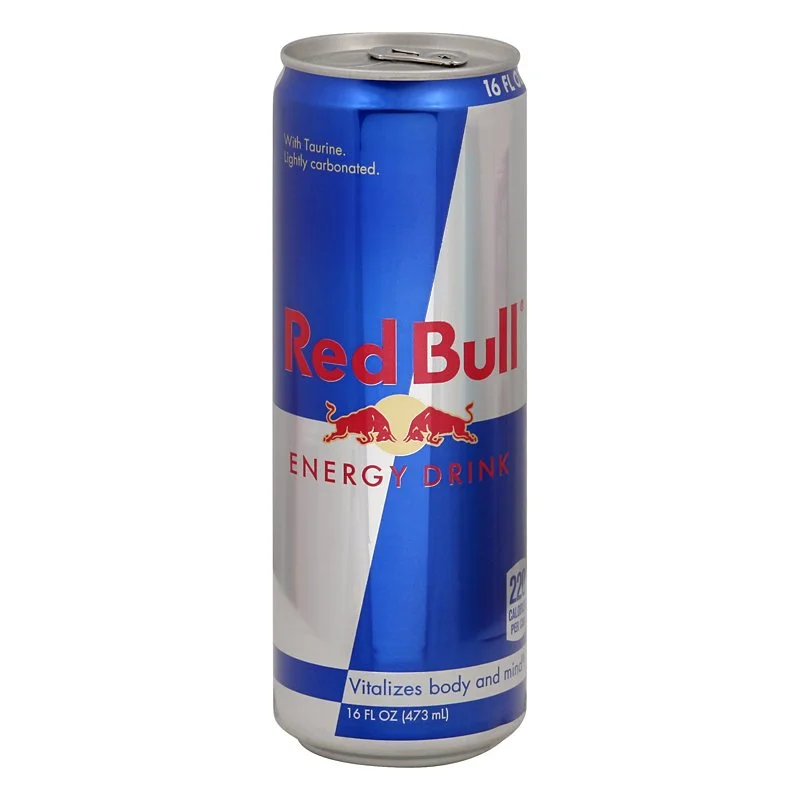
You may think an energy drink is ideal pre-workout but they’re (typically) not the best choice for a pre-workout supplement. While they may provide a quick energy boost, they also have drawbacks. Namely, while they have a lot of caffeine, they also have a lot of (processed) sugar which you should avoid before a workout.
The high-calorie count – an 8.4 oz Red Bull has almost 120 calories – is also a downside for those trying to lose weight or stay lean. Many also contain artificial sweeteners and other additives that could impact your health.
What Pre-Workout Ingredients Should I Avoid?
Pre-workout supplements can be a great way to give your workout an extra boost, but it’s critical to know which ingredients you should avoid. Some of the most common pre-workout supplement ingredients that have been linked to adverse effects include yohimbine (Yohimbe), DMAA, and synephrine.
Yohimbine is an alkaloid found in certain plants and has been associated with increased heart rate and blood pressure. DMAA (1,3-dimethylamylamine) is a stimulant that has been linked to serious side effects such as stroke and heart attack. Synephrine is another stimulant that can cause high blood pressure and heart palpitations.
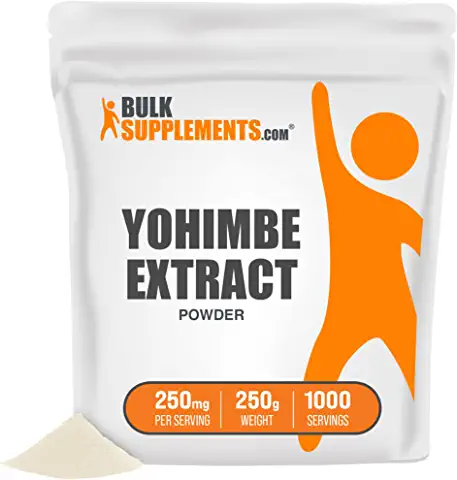
Even though it was banned in 2004, you should let the story of ephedra be a warning when it comes to stimulants. While not a stimulant and generally recognized as safe, you may also want to avoid certain additives such as GMOs (genetically modified organisms), artificial flavors, artificial colors, certain sweeteners, and “filler” ingredients such as sugar or soy.
If that’s the case, look for “natural” pre-workouts, although always be sure to read the ingredients before buying. Even natural pre-workout supplements can be full of “unnatural” ingredients that are hidden on the label.
Lastly, it’s important to be aware of the potential interactions between pre-workout supplements and other medications or supplements you are taking.
Should I Take a Full Dose?
If you’re new to pre-workouts, I would highly recommend you don’t take a full dose to start. You should first gauge your tolerance levels because your body chemistry will dictate how you react to a pre-workout.
Additionally, many pre-workouts do not vary their dosage based on your weight. After all, if you’re a slight 125 lb. it makes sense that you shouldn’t take as much as a 250 lb. boss.
Too much of anything can be bad for you and, trust me, but too much pre-workout can leave you feeling jittery, lethargic, and just overall poor. A good option: start at a half-dose and then adjust from there.
How Long Does Pre-Workout Take to Kick In?
Most pre-workouts take effect in 20-30 minutes. That’s the “sweet spot” where you begin to feel increased energy levels. Since most pre-workout formulas are similar, you’ll get similar times before feeling any changes.
Personally, in terms of exercise performance benefits, I like to sip about half of it during the 20-30 minutes before I work out while I drink the rest during the first part of my actual workout.
What’s the Best Pre Workout?
I’m a firm believer that there is no one “best” pre-workout for everyone. Instead, it depends on what you’re looking for (natural? stimulant free?) as well as your goals with the pre-workout. That said, I’ve actually bought, used, and reviewed many different pre-workouts.
Each has their advantages and I’ll create a top 5 list of my favorite pre-workouts soon and link it back here.
The Pros and Cons of Taking Pre-Workout
Here’s a quick overview of the benefits and drawbacks of taking a pre-workout supplement:
Pros
- Can help increase energy, focus, and endurance during your workout.
- Can also help reduce muscle fatigue and improve muscle strength and power.
- Can provide some cognitive benefits, such as increased alertness
- Relatively cheap and effective with lots of different options available
Cons
- Some of the ingredients in pre-workout supplements may cause side effects such as jitters, nausea, or headaches.
- Ingredients may negatively interact with other medications you are taking
- Can build up a tolerance if used too often; best to cycle its use
- Raises blood pressure, sometimes rather significantly
Summary (TL;DR)

Working out can be intimidating, especially if you’re new to fitness. But with the right pre-workout supplements, you can get the most out of your tough workout and reach your goals faster. Pre-workout supplements are designed to give you a performance boost, help build muscle, increase endurance and reduce fatigue.
They usually contain caffeine (or other stimulants) and other ingredients like amino acids, vitamins, and minerals. When choosing a pre-workout supplement, it’s important to read the label carefully and make sure it’s safe for you to take.
While a pre-workout does have drawbacks and, in my opinion, shouldn’t be used every day, with the right pre-workout supplement, you’ll be ready to hit the gym and get the results you want.





